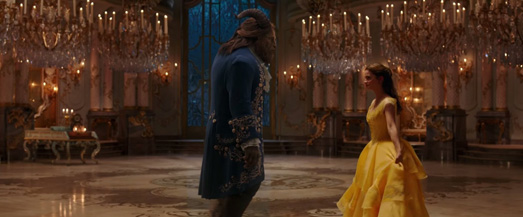|
|
Movie Review: Beauty and the BeastBy Matthew HuntleyMarch 27, 2017
Despite the A-list talent behind it though, the music doesn't possess the same zest and spontaneity as the animated version (but then, how could it?). Even after seeing the original so many times, its music always feels fresh and alive; it's an aspect of the feature many viewers, myself included, look forward to with giddy anticipation. Here, the music is strangely awkward and sounds more like an imitation of something better. Plus, it's more obvious than usual the lyrics exist on a different audio channel and aren't production-based, which make the characters and their words feel detached from one another. And though the actors may look the parts, their embodiment of the characters never goes beyond the superficial. They appear just as artificial as their surroundings and we're always aware they're wearing costumes instead of clothes, if you know what I mean. We watch them go through the motions of emulating their animated counterparts but never listen or invest in them emotionally, and so the romantic aspect of the tale, the love if you will, escapes us. Perhaps, then, Beauty and the Beast, whether it's the animated feature or Broadway musical, is an example of a story whose original media just shouldn't be altered or combined with another form. The filmmakers tried but failed. At the end of it, my reaction was not one of pleasure or enthusiasm, but a question: what did this remake accomplish? It's a large, lavish production with lots happening on-screen, and yet, despite this, it left me feeling empty and disappointed. Before Disney commits to another live-action reimagining, which I'm sure is already in the works, the studio needs to genuinely ask whether it's necessary and if it will entertain viewers on its own terms or just leave them yearning for the original. In the case of Beauty and the Beast, it's the latter
|

|
|
|

|
Friday, November 1, 2024
© 2024 Box Office Prophets, a division of One Of Us, Inc.


